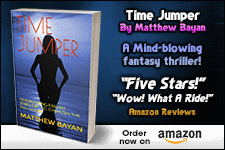Inject Suspense into Your Writing
- Matthew Bayan
- Oct 20, 2020
- 2 min read

I just watched THE INVISIBLE MAN on HBO. Not the original with Claude Rains, but the 2020 release. I didn’t have high expectations. Was I surprised.
The first ten minutes of the movie have no dialogue, except for right near the end of the scene. Summation of what happens: a woman leaves her sleeping boyfriend and gets picked up by her sister. Doesn't sound like much. However, by the end of the scene I was sweating.
Why? The best use of suspense I’ve seen in years.
The woman wakes in the middle of the night and creeps out of a bedroom. She gets dressed and tiptoes to a room where she can see all parts of the home through security cameras. She checks to make sure the man is still sleeping, then disables all the cameras. Why? She turns off the security system and creeps through the massive house to go out the front door. She hears something and runs into the woods. Why?
Panting, running, she hears someone following her. She reaches a road and waits, checking behind herself constantly. A car’s headlights approach and she piles into it. The woman driving wants to know what’s wrong. Suddenly the man appears and crashes his fist through the passenger window. The car speeds away.
The entire scene is about setting, atmosphere, and conflict. We don’t know who any of the characters are at this point, but we know something unusual and dangerous is afoot. Over several more scenes, we stitch together why these events happened. We’re halfway through the movie before we understand. Result? Suspense.
The use of suspense is one of the most effective ways to hook a reader. And it doesn’t have to involve high drama. Imagine a scene where a destitute person holds a lottery ticket while standing in front of a storefront window to watch a television showing the weekly lottery numbers draw. The first number is shown on the screen. The vagrant looks at his ticket; he has that number. He has the next number and the next. His eyes go wide as he waits for the next number. Etc. You could milk this scene for five or ten pages, constantly building suspense toward what either is a win or a huge disappointment.
Thanksgiving dinner. A family member is waiting for the right moment to announce something. More potential for suspense.
The trick is to give the reader a little bit of information, then drag out the reveal. The anticipation of a surprise creates suspense. Done well, the reader is drooling for the information that resolves the set-up.
Visit my web site for more writing/editing blogs. www.matthewbayan.com









Comments